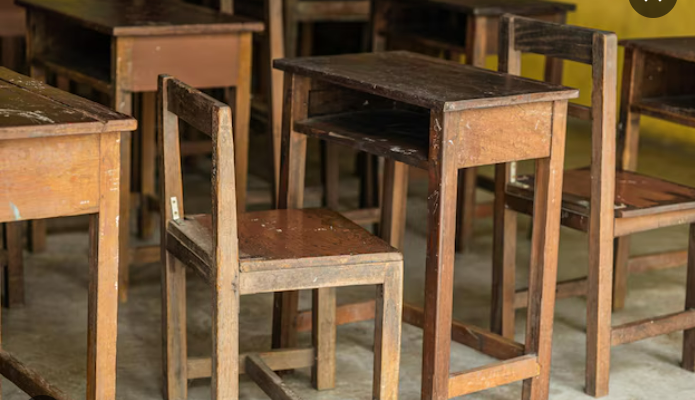Government to ban wooden school furniture, styrofoam food packs – Nsemkeka
President John Mahama has announced that the government will soon introduce a directive to stop the use of wood in the production of school furniture as part of a broader effort to protect Ghana’s environment.
Speaking during World Environment Day celebrations at Kwabenya, Accra, the President explained that the move aims to preserve the country’s trees and promote the use of sustainable materials such as recycled plastic and metal.
“We can’t be planting trees and cutting them down at the same time,” President Mahama said. “And so to reduce the cutting of trees, it is my intention to issue a directive to stop the use of wood for school furniture. We’re soon going to pass a directive. School furniture will no longer be made of wood so that we can stop the cutting down of our trees. We’ll either use recycled plastic or we’ll use metal furniture.”
The President also revealed plans to ban the use and importation of styrofoam commonly used for takeaway food packaging due to its harmful effects on the environment.
“One of the most pernicious polluters is styrofoam plastic,” he said. “When you go to buy your food and they put it in that white plastic something… and then you finish eating, you just dump it. That is one of the biggest polluters. And so we’re going to ban the importation of styrofoam plastics. We have to use paper packaging or aluminium foil for packaging our food.”
He added that manufacturers and importers of styrofoam products should begin preparing for the change. “With the Ministry of Environment, soon we’re going to ban the importation and production of styrofoam in Ghana. Our food packaging will be made from paper and also from aluminium material,” he said.
On illegal mining, President Mahama commended recent efforts by security forces to clear miners from protected forest areas. He stated that nine forest reserves had been taken over by heavily armed illegal miners, making them no-go zones, but eight of these have now been cleared.
“As I speak, they have seized 300 excavators from illegal miners,” he noted. “Working together with the military and the police, they’ve been able to evict the illegal miners from eight of the no-go zone forest reserves. My understanding is that they’re in the process of liberating the last of the nine red zones.”
He warned that 44 of Ghana’s 288 forest reserves have already been invaded by illegal small-scale miners, posing a major threat to the country’s environment and water bodies.
“Our rivers take their source from our forests. And so if we destroy our forests, our rivers will also dry up,” he stressed. “This fight is very important in order that we can hand over a good environment to our younger brothers and sisters and our children who are yet unborn.”

